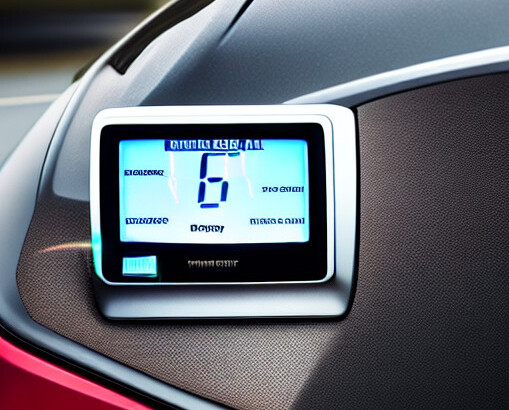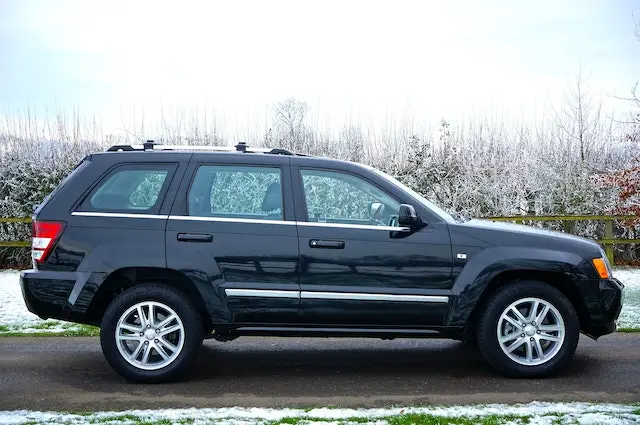Fuel efficiency is a crucial aspect of modern-day transportation, directly impacting both our wallets and the environment. In this article, we will explore the concept of fuel efficiency, understand how it is measured, and discover ways to improve it. On an average trip, cars typically achieve around 25 miles in a gallon, while certain models can reach up to an impressive 40 miles in a gallon. Whether you’re a car enthusiast or simply a conscious consumer, knowing how many miles you can get from a gallon of fuel is valuable information.
What is Fuel Efficiency?
Fuel efficiency refers to the distance traveled by a vehicle on a specific amount of fuel. It is typically measured in miles per gallon (MPG) in countries like the United States. The higher the MPG, the more efficient the vehicle is in terms of fuel consumption. Higher fuel efficiency translates to fewer trips to the gas station and reduced carbon emissions.
The Importance of Fuel Efficiency
Fuel efficiency plays a vital role in our lives for several reasons. First and foremost, it helps us save money. When our vehicles consume less fuel, we spend less on gasoline or diesel. Over time, these savings can add up significantly. Additionally, fuel efficiency contributes to a cleaner environment by reducing greenhouse gas emissions, air pollution, and dependence on fossil fuels.
How Many Miles in a Gallon of Gas?
Several factors influence how many miles per gallon of fuel a vehicle can go. Understanding these factors can help you make informed decisions and improve your overall miles in a gallon. Lets investigate how many miles are in a gallon of gasoline?
Vehicle Type and Size
Different types and sizes of vehicles have varying levels of fuel efficiency. Smaller and lighter vehicles tend to be more fuel-efficient than larger ones. Compact cars and hybrids often offer higher MPG compared to SUVs or trucks.
Driving Conditions
Driving conditions such as traffic congestion, road type, and elevation affect fuel efficiency. Stop-and-go traffic, hilly terrains, and rough roads can decrease average MPG.
Speed and Acceleration
Driving at higher speeds and aggressive acceleration can significantly reduce fuel efficiency. Maintaining a steady speed and avoiding sudden accelerations and hard braking can improve miles in a gallon.
Maintenance and Tune-Ups
Regular maintenance, including oil changes, air filter replacements, and spark plug checks, ensures optimal fuel efficiency. Neglecting maintenance can lead to decreased miles in a gallon.
Tire Pressure
Properly inflated tires reduce rolling resistance and improve fuel efficiency. Underinflated tires can decrease average MPG and increase the risk of accidents.
Weight and Cargo
Carrying unnecessary weight or excessive cargo in your vehicle can negatively impact fuel efficiency. Remove items that are not needed to lighten the load and improve MPG.
How Many Miles in a Gallon of Diesel?
The mileage you can achieve from a gallon of diesel fuel depends on various factors such as vehicle efficiency, driving conditions, and maintenance. On average, diesel vehicles can provide a range of 20 to 30 miles in a gallon. However, it’s important to note that specific mileage may vary depending on the vehicle make, model, and driving habits. Regular maintenance and adopting fuel-efficient driving techniques can help optimize the mileage you get from a gallon of diesel.
How to Calculate Miles per Gallon (MPG)

To calculate your vehicle’s miles in a gallon, follow these steps:
- Fill up your gas tank.
- Reset your trip odometer or note down the current mileage.
- Drive as you normally would until your gas tank is nearly empty.
- Fill up your gas tank again and note the number of gallons it takes to fill it.
- Determine the difference in mileage from the initial reading to the final reading.
- Divide the mileage difference by the number of gallons it took to fill the tank. The result is your average MPG.
Average Fuel Efficiency for Different Vehicle Types
While fuel efficiency varies depending on numerous factors, here are some average MPG values for different vehicle types:
Compact Cars
Compact cars typically offer an average fuel efficiency of 25-35 miles in a gallon in city driving conditions and 30-45 MPG on highways.

Sedans
Mid-size sedans generally provide an average fuel efficiency of 20-30 MPG in the city and 30-40 miles in a gallon on highways.
SUVs and Crossovers

SUVs and crossovers tend to have lower fuel efficiency compared to smaller vehicles. They typically offer an average of 15-25 MPG in city driving and 25-35 MPG on highways.
Trucks
Trucks, especially larger ones, have lower MPG due to their size and weight. On average, trucks offer around 15-20 MPG in the city and 20-25 miles in a gallon on highways.
Tips for Improving Fuel Efficiency
If you’re looking to improve your vehicle’s fuel efficiency, here are some practical tips:
Proper Vehicle Maintenance
Regularly maintain your vehicle by following the manufacturer’s recommendations. This includes routine oil changes, air filter replacements, and spark plug checks.
Smooth and Steady Driving
Avoid aggressive driving behaviors such as rapid acceleration and hard braking. Maintain a consistent speed, use cruise control when appropriate, and anticipate traffic conditions to avoid unnecessary stops.
Reduce Weight and Aerodynamic Drag
Remove unnecessary items from your vehicle, as added weight decreases miles in a gallon. Additionally, reduce aerodynamic drag by closing windows at high speeds and removing rooftop cargo carriers when not in use.
Use Cruise Control
Utilize cruise control when driving on highways or long stretches of road. It helps maintain a consistent speed and can improve MPG by preventing unnecessary speed fluctuations.
Avoid Excessive Idling
Idling consumes fuel without covering any distance. Avoid long periods of idling and turn off the engine if you anticipate being stationary for more than a minute.
Plan Efficient Routes
When possible, plan your routes to avoid heavy traffic, construction zones, and hilly terrains. Using GPS navigation apps can help you find the most fuel-efficient routes.
Combine Trips and Carpool
Combine multiple short trips into a single journey whenever possible. Carpooling with colleagues or friends can also reduce the number of vehicles on the road and save fuel.
Use the Correct Grade of Motor Oil
Using the manufacturer-recommended motor oil with the right viscosity can reduce friction and enhance miles in a gallon.
Turn off the Car
Turning off your car when it is not in use, such as during prolonged idling or waiting, can increase your miles per gallon (MPG). When the engine is off, fuel consumption ceases, resulting in fuel savings. This practice is especially beneficial in situations where you anticipate being stationary for more than a minute, as idling consumes fuel without covering any distance.
Wheel Alignment
Wheel alignment plays a crucial role in maximizing fuel efficiency. By ensuring that the wheels are properly aligned, it reduces rolling resistance and tire drag, resulting in improved MPG. Regular alignment checks and adjustments help maintain optimal fuel efficiency, extend tire life, and enhance overall driving experience. Proper wheel alignment is a key factor in achieving better miles in a gallon.
The Future of Fuel Efficiency
With the growing concerns about climate change and environmental sustainability, fuel efficiency will continue to be a significant focus in the automotive industry. Automakers are investing in advanced technologies such as hybrid and electric vehicles to provide even higher miles in a gallon and reduce carbon emissions. As technology progresses, we can expect further advancements in fuel efficiency.
Conclusion
Understanding fuel efficiency is essential for both economic and environmental reasons. By implementing simple measures like proper vehicle maintenance, mindful driving habits, and optimizing routes, you can improve your vehicle’s MPG and contribute to a cleaner and greener future.
FAQs
How many miles in a gallon can I expect from gasoline?
The number of miles you can expect from a gallon of gasoline varies depending on several factors such as vehicle type, driving conditions, and maintenance. On average, a typical compact car can achieve around 25-35 miles in a gallon in city driving and 30-45 miles per gallon on highways.
What is the average fuel efficiency for hybrid cars?
Hybrid cars are known for their exceptional fuel efficiency. On average, hybrid cars can achieve around 40-50 miles per gallon in combined city and highway driving, although specific values may vary based on the model and driving conditions.
Is 53 miles per gallon good?
Yes, achieving 53 miles per gallon is considered excellent fuel efficiency and is considered good for most vehicles.
Can fuel additives improve fuel efficiency?
While some fuel additives claim to improve fuel efficiency, their actual effectiveness is often debated. It is best to consult your vehicle’s manufacturer or trusted automotive experts for recommendations on fuel additives.
How many liters in a gallon?
There are approximately 3.785 liters in one gallon.
What is the best fuel additive?
Determining the best fuel additive depends on your specific needs. Popular options include additives that improve average MPG, reduce emissions, or clean the fuel system. It’s recommended to consult with your vehicle manufacturer or trusted automotive experts for personalized recommendations.
